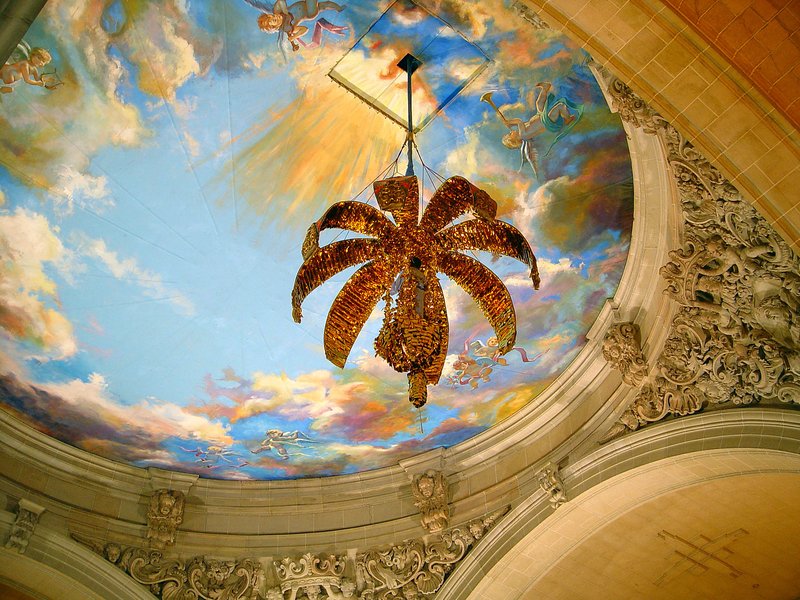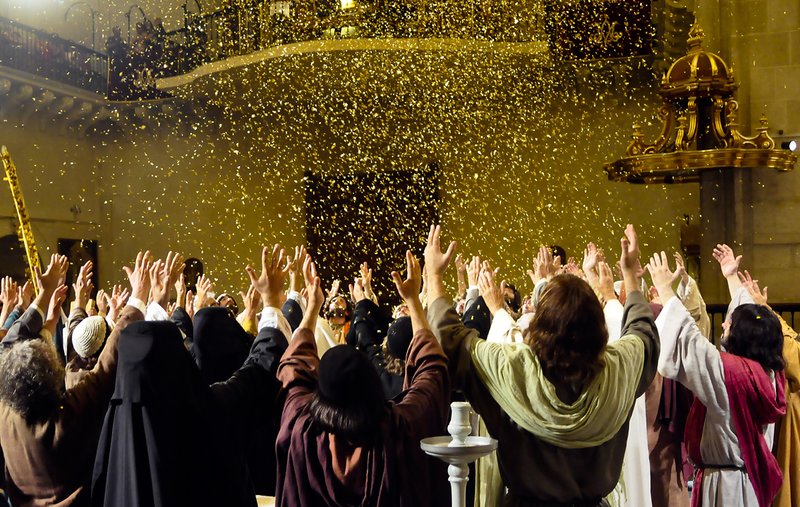Mystery Play of Elche
The Mystery Play, or Festa d’Elx, the most authentic symbol of the city´s identity, is a chanted drama, of mediaeval origins, which traces the dormancy, the assumption to the skies and crowning of the Virgin Mary. It is divided into two acts: the Vespra or the Eve, which is performed on the 14th August and Dia de la Mare de Déu or Day of the Mother of God, on the 15th August. The scenario is the baroque Basilica of Santa Maria, the construction of which very much took into account this purpose.
Access to the Basilica, both on the 14th and 15th, is free, with its doors remaining wide open. However, owing to the enormous popularity of the play and devotion that is felt for it by the people of Elche, it is essential to arrive at the church several hours in advance.
Open Rehearsals
On the 11th, 12th and 13th August, open rehearsals take place, when the whole performance is concentrated into a single day, and which may be enjoyed by purchasing a ticket.
In addition, in even-numbered years, there are extra ticketed performances on the 29th, 30th October and free access on the 1st November, in the morning to the performance of the Vespra, followed by the funeral procession and, in the afternoon, to the performance of the Dia de la Mare of Déu).
Mediaeval Origins
Its medieval origins date back to the second half of the 15th century, and it has survived through to modern times thanks to the Papal bull of Pope Urban VIII in 1632, after the Council of Trento (1545-1563) prohibited the performance of mystery plays inside Christian temples. The perseverance and affection of the people of Elche have converted the Festa, or Mystery Play, into the last surviving vestige of performances of its kind.
The accompanying music originates from several different eras and styles, with Medieval, Renaissance and Baroque melodies, and examples of monophony and polyphony. The performance is undertaken by non-professional singers and a choir of children with treble voices for the roles of Mary and angels, since in the Middle Ages women could not participate in plays and were considered unclean beings for the liturgy.
Aerial Devices
If there is one thing which most characterises the Mystery Play of Elche, it is the complexity of the staging, with its division into horizontal-terrestrial and vertical-aerial scenographic space and the use of aerial devices, which descend from within the dome of the Basilica.
On the 18 May 2001, UNESCO declared it a Masterpiece of Oral and Intangible World Heritage, thus making it the first Spanish festival to receive this award.











